Hubei University began to explore the cultivation program of translation and interpreting in 2001, which was the earliest in Hubei to run interpreting pilot class as well as orientation of translation and interpreting majoring in English in 2002 and 2003 respectively. In 2008, with the BTI programme approved by the Ministry of Education of P.R. China, Hubei University thus became one of the first two universities (together with Huazhong University of Science and Technology) in Hubei to obtain the qualification for BTI programme enrolment. In 2010, Hubei University was authorized to run the MTI programme (Master of Translation and Interpreting), forming a T&I talent cultivation frame of “BTI-MTI-MA (oriented in translation)”. In 2011, the Department of Translation and Interpreting and MTI Education Centre were established.
We have been enrolling undergraduates since 2009 and have 167 students at present. After years of arduous work, we have achieved remarkable success in teaching, research and talent cultivation.
Teaching Staff
We boast a young well-experienced team with good educational backgrounds, degrees, academic qualifications, professional titles and research interests. Specifically, there are 4 professors and 3 associate professors in terms of professional title; 5 teachers with domestic and foreign doctorates, and 2 PhD. candidates in terms of degree. All the teachers had the experience of academic visit at home or abroad.
During the past three years, we have won many high-level awards which can epitomize our strength in teaching and research. For example, the project “Development and Implementation of Innovative Talent cultivation System for BTI” by Professor Jiang Xiaomei and her peers won the second-level prize of “Award for Teaching Achievement” at provincial level and the first-level prize at university level. Professor Yang Yuangang and Professor Liu Guozhi were awarded respectively the title of “National Model Teacher in Master of Education Teaching”, “Model Female Teacher" of Hubei Province, “Model Teacher of Noble Morality” of Hubei University etc. Also, we have won many other awards such as “Top Ten Outstanding Young and Middle-aged Translators” in Hubei Province (twice), “Outstanding Academic Achievements Award of Hubei Translators’ Association” (6 first prizes and 1 second prize), and “Award for Excellent Teaching Quality” of Hubei University etc.
We have undertaken a number of teaching and research projects at provincial and ministerial level and have published a lot of textbooks, monographs on translation studies, and have translated many academic classics and literary works.
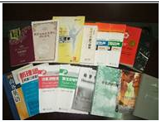
|
A Glimpse of Monographs, Translated Works and Textbooks |
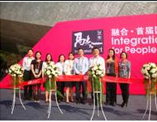
|
Language Service for“Integration• The First International Art Exhibition for the Disabled People” (Wuhan 2015) as Simultaneous Interpreters |
Teaching Resources
We are equipped with a CAT-based autonomous learning centre, a Philip-based simultaneous interpreting laboratory and a Televic-based simultaneous interpreting laboratory, covering an area of 260 square metres in total. In addition, we share 23 digital language learning laboratories, audio-visual rooms and multimedia classrooms with other majors of School of Foreign Languages, covering an area of 1650 square metres.
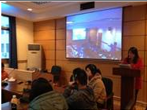
|
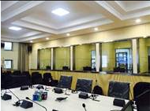
|

|
Philip simultaneous interpreting laboratory: The first of all the universities in central China |
Televic simultaneous interpreting laboratory: The first of all the universities in Hubei at standard of UN and EU conference |
CAT platform based on SDL TRADOs: The first of all the universities in Hubei to install this software |
Talent Cultivation
We attach great importance to talent cultivation, adopting various measures to enhance the students’ language proficiency, innovative spirit and comprehensive competence for practice.
In recent years, the initial passing rate of oral and written test of TEM-4 and TEM-8 is nearly 100% and over 90% respectively, which are both 40% higher than those of other comprehensive universities in China. Over the past three years, the employment rate has amounted to 100%. Many students have been enrolled by key universities at home and abroad for further study.
The majors of translation and interpreting actively participated in national and provincial contest related to translation and won many awards such as the grand prize and the first prize in the 3rd and 6th Cross-Strait Interpretation Competition (stage of Central China) respectively, and the grand prize in the 4th National Interpretation Competition (stage of Hubei Province), etc.
Based on serving the local economy, we maintain a good cooperation with governments, enterprises and institutions, translation companies and translation training centres. The joint effort on internship bases development has provided a broad platform for cultivating innovative translators.
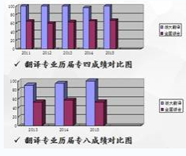
|
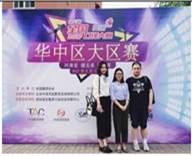
|
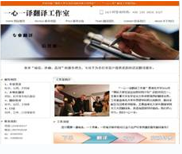
|
The TEM-4/TEM-8 passing rate of BTI compared with other comprehensive universities in China |
Students participated in the National Interpreting Contest and won the awards |
CAT-based Translation Workshop, the national-level innovation team |
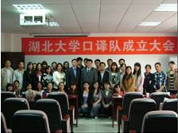
|
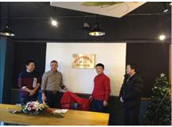
|
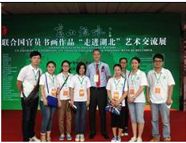
|
The founding ceremony of the interpreting team |
The opening ceremony of training and internship base for BTI |
Students served as interpreters for the art exhibition “Going into Hubei” of UN officials |
Major Courses:
General English, English Speaking, English Reading, English Writing, Advanced English, Basics of Translation, Basics of Interpreting, Consecutive Interpreting, Simultaneous Interpreting, Technical Translation, An Introduction to Translation Studies, Contrastive Studies of English and Chinese Languages, General Linguistics, History and Selected Readings of English and American Literature.
Minimum Credits for Graduation:
154 credits (including 122 credits for compulsory courses, 28 credits for optional courses, and 4 credits for extracurricular innovation and practice)
Tuition Fee (per year):
RMB 5850 yuan